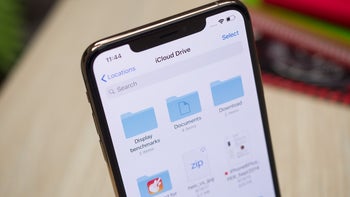New report suggests Apple gets along with the FBI better than you think

Apple is at the center of yet another heated debate over iPhone data encryption as it continues to do a tricky balancing act between protecting user privacy and helping US law enforcement easily obtain information on persons of interest involved in high-profile crimes, but the company reportedly considered a shift in its policy not that long ago which would have made its stance crystal clear once and for all.
Not only that, but the Cupertino-based tech giant would have made the subpoenas, court orders, and informal government requests for data it sometimes resists (and many times not) pretty much pointless if end-to-end encryption for iCloud backups ultimately became a reality. That obviously never happened and it's unlikely to materialize anytime soon either after Apple essentially asked for the FBI's blessing to make the change, and unsurprisingly, no agreement was reached.

All this behind-the-scenes work went down a couple of years back, according to no less than six unnamed sources "familiar with the matter" quoted by Reuters, but today is the very first time we're hearing whispers of Apple's cancelled plans.
The FBI convinced Apple to drop end-to-end encryption
Before we get into the meat of this interesting new report, we should probably explain how end-to-end encryption works. The technology has been popularized in the last few years by WhatsApp, Telegram, and other instant messaging apps that use it to ensure all communication done on their platforms stays between the sender and recipient.
At least in theory, no one should be able to intercept or decrypt these exchanges of information, which makes it pretty obvious why the FBI was reluctant to allow Apple to implement similar protection methods for iCloud backups.

Of course, Apple didn't actually need permission from the Federal Bureau or any US government agencies at all to revise its policies and mechanisms of keeping user data under lock and key. In fact, it's not clear why the company discussed its secret plans with the FBI, but that almost certainly happened, and predictably enough, the Bureau's cyber crime-fighting and operational technology divisions were opposed to the idea, arguing it would deny them the "most effective means for gaining evidence against iPhone-using suspects."
That argument and the fear public officials would go for Apple's jugular for protecting criminals ultimately killed the plan, which would have made it impossible for the company to access its customers' cloud-hoarded data. Furthermore, the risk of getting sued by the government for moving previously accessible data out of reach may have also played a key role in Apple's decision to not "poke the bear anymore."
Imagine Donald Trump's anger had Apple decided to do this
As things stand, it's really not that difficult for the FBI to break into a suspect's iPhone using special hardware designed by infamous companies like Cellebrite and Grayshift. Besides, as Apple highlighted in a transparency report released after the whole scandal surrounding the dead Naval Air Station Pensacola shooter erupted, the tech giant complies with the vast majority of government information requests.
We are helping Apple all of the time on TRADE and so many other issues, and yet they refuse to unlock phones used by killers, drug dealers and other violent criminal elements. They will have to step up to the plate and help our great Country, NOW! MAKE AMERICA GREAT AGAIN.
— Donald J. Trump (@realDonaldTrump) January 14, 2020
The very fact Apple consulted with the Bureau's cyber crime and tech experts before adopting end-to-end iCloud encryption proves the company "gets along with the federal government" just fine, which makes President Trump's recent Twitter tirade feel completely out of line.
After all, Google did implement back in 2018 something similar to what Apple was purportedly preparing for cloud backups on Android Pie and we don't remember Trump accusing the Alphabet-owned search giant of aiding and abetting "killers, drug dealers, and other violent criminal elements." Of course, the most powerful man in the world did threaten to watch Google "very closely" ahead of the 2020 election, but clearly, Trump is more closely scrutinizing the company led by none other than "Tim Apple."













Things that are NOT allowed: